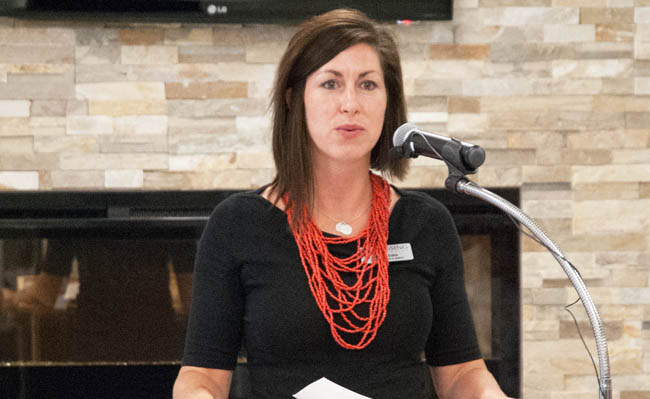Nipissing University professor calls for meaningful consultation in new book

By Kelly Anne Smith
NORTH BAY – “Since time immemorial” are the first three words in Carly Dokis’s Where Rivers Meet: Pipelines, Participatory Resource Management, and Aboriginal-State Relationships in the Northwest Territories.
Dokis questions how political statements about sovereignty and the right to decide the fate of the land turn into bureaucratic spreadsheets on costs and benefits.
She points to research conducted in the 1970’s by Justice Thomas Berger. For three years he studied participatory management along the trap-lines by sitting down and talking to the trappers. He found that the people were against pipelines in the Mackenzie Valley at least until the title to the land was resolved.
Dokis says the personal touch of the Berger Inquiry was a rarity with hearings now serving the state.
Dokis also spent time in the Sahtu region where the people live with the land rich in nature. Dokis studied what was important to the indigenous community members as mining and pipeline companies encroached upon their territory. She found that the casual approach of companies consulting by chatting over tea has turned cold and technical.
Dokis was told by the Sahtu Dene people that corporations must development relationships with First Nations. “It is about seriously listening and comprehending what it is that communities and community members are saying in the context of environmental decision making. It means understanding as much as possible what people mean when they say “one million dollars can’t buy a moose”.”
Consultation is not just a means to check off a box on a form states Dokis. “It is not just about what a company needs to do to fulfill a regulatory requirement.”
Nipissing University, where Dokis is an Anthropology professor, had a launch party for Where the Rivers Meet. Dokis told the crowd that she was invited to a trapper’s cabin to talk to an elder. She explained he tested her patience with not speaking one word. Because she had been respectful in following his lead, he invited her back again to begin a relationship with real conversation.
Dokis ensures that she in not anti-development. “I think it is important to recognize that we need to hold our government to account for the needs of communities. These decisions about pipelines and mines are not just economic decisions. They affect people’s families, their communities, and their sense of who they are. All of these factors have to be taken into consideration.”
The professor urges the real participation of indigenous nations when making decisions in whatever happens on their territories. “The people have said that their engagements with their land, their territory, and the other human components that live there are important and have to be respected.”


